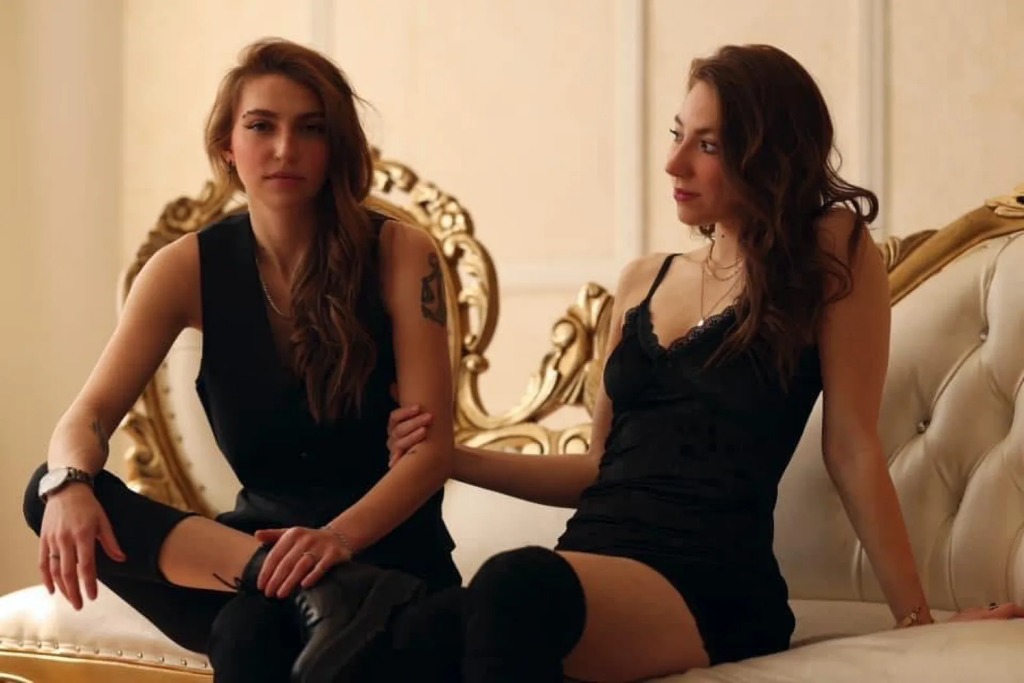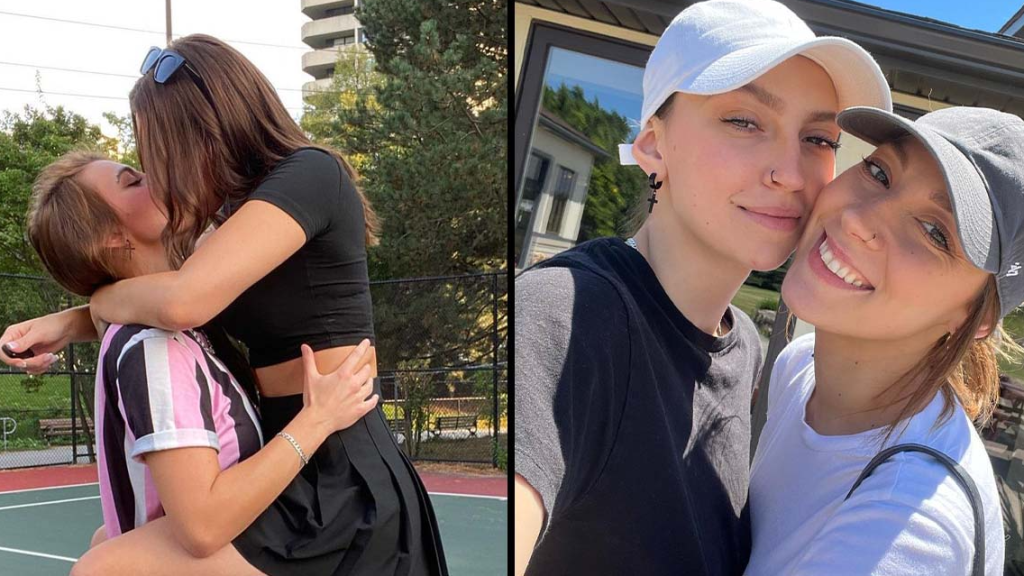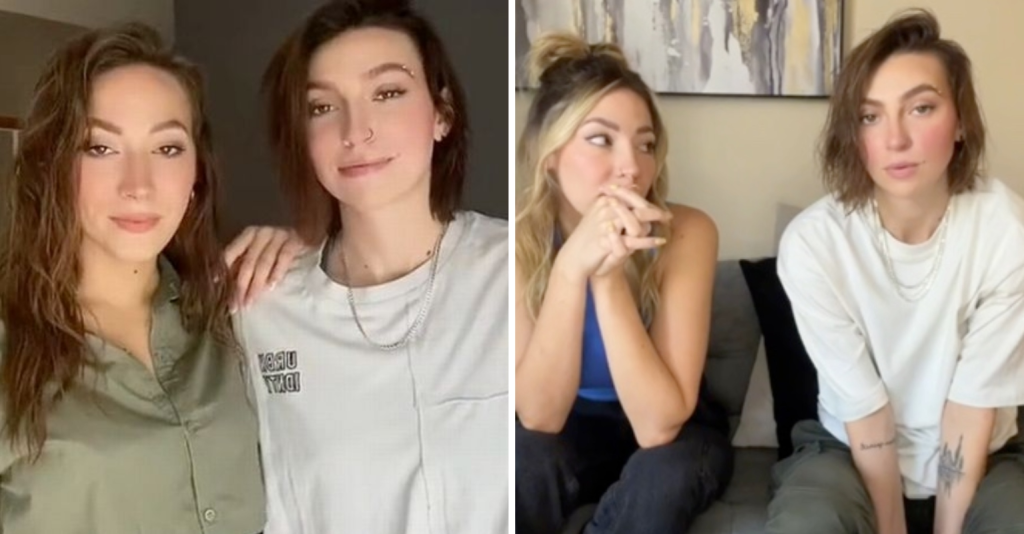
In a world driven by viral trends and personal oversharing, the internet thrives on shock value. But sometimes, a story hits deeper. It makes you pause. It makes you question everything—from identity to boundaries to the very meaning of love.
That’s exactly what happened when a TikTok couple named Carley and Mercedes posted a confession that sent shockwaves through their 600,000+ followers—and beyond.
After dating for more than two years, the pair suggested they might actually be biological half-sisters. And just like that, the internet collectively lost its mind.
“Funny Weird, Not Funny Ha-Ha”
The video that started it all was short, dramatic, and perfectly timed. Set to a trending audio that says, “Funny, yes. But not funny ‘haha’—funny weird,” Carley and Mercedes dropped a caption that no one saw coming:
“When you find out two years into dating that your moms both slept with the same guy.”

The clip rocketed past 7.6 million views. Commenters flooded in. Some laughed. Some freaked out. Others just asked: “Wait, what?!”
Oh, and they threw in a poll for good measure: “Should we take a DNA test?”
What made the situation even messier? The fact that they do look eerily alike.
“Y’all look like sisters. I always thought that,” wrote one follower. Another added, “I thought this was a joke at first—but now I’m not so sure.”

Their similar facial features only fueled the speculation. Suddenly, this wasn’t just a love story—it was a possible plot twist straight out of a reality TV show.
And just like that, the comments section turned into a digital courtroom. Some fans begged them to take the DNA test. Others joked about denial. A few even questioned the ethics of continuing the relationship if the results came back positive.
Naturally, not everyone bought into the story.
Some users suggested this was nothing more than a well-timed publicity stunt—a move designed to rake in followers, views, and potential revenue from other platforms.
Video: STORYTIME: HOW WE MET!
“I can’t tell if this is real or just a genius marketing strategy,” one commenter wrote. Another said, “Whether it’s fake or not, you two have definitely figured out how to keep us watching.”
In today’s creator economy, where attention is currency, it’s not uncommon to see blurred lines between authenticity and performance. And this situation sits right at the intersection.
Even if the story turns out to be staged, the emotional ripple effect is very real. Carley and Mercedes tapped into something that’s becoming more common than we realize: accidental family revelations.

With the rise of ancestry DNA kits and social media snooping, more and more people are uncovering long-hidden truths about their families. Half-siblings. Unknown parents. Entire branches of family trees they never knew existed.
It’s messy. It’s emotional. And it’s changing how we view identity.
So here’s the uncomfortable question: If you’ve been in love with someone for two years, and then discover you might share a parent, what do you do?
That’s the core of why this story is so explosive. It’s not just clickbait—it’s a real ethical dilemma that challenges the rules of love and family. Does biology override emotion? Or does the bond you’ve built matter more?

Some viewers say the answer is simple: Get the test, face the truth, and figure it out from there. Others argue that if the relationship has been healthy, respectful, and loving, why rock the boat?
In a way, the couple’s refusal to confirm whether they’ve tested or not keeps the tension alive. It also mirrors the complexity of real-life identity crises—sometimes, people just aren’t ready for the answers.
This story also raises a bigger question about what we’re willing to share online—and why. There’s no doubt that deeply personal content performs well on platforms like TikTok. It triggers emotion, sparks debate, and keeps people engaged.
Video: Tiktok couple reckons they’re half sisters goes viral
But what happens when that personal content affects your sense of self? Your relationship? Your family?
Creators like Carley and Mercedes walk a thin line. One foot in vulnerability, one foot in strategy. And whether you see their post as brave, exploitative, or simply smart marketing—it’s hard to look away.
Carley and Mercedes might be lovers. They might be half-sisters. They might even be both—or neither.
What’s clear is that their story tapped into something primal: the need to know who we are, where we come from, and who we’re allowed to love.

As we continue to live our lives out loud on social media, stories like this won’t be rare. If anything, they’ll become more common. More shocking. And more complicated.
So, next time you scroll past a couple sharing their love story online, you might find yourself asking: Is this real? But maybe the better question is: Does it even matter if it’s not?
Because in the age of viral storytelling, the truth isn’t just about facts—it’s about the conversations we start because of them.